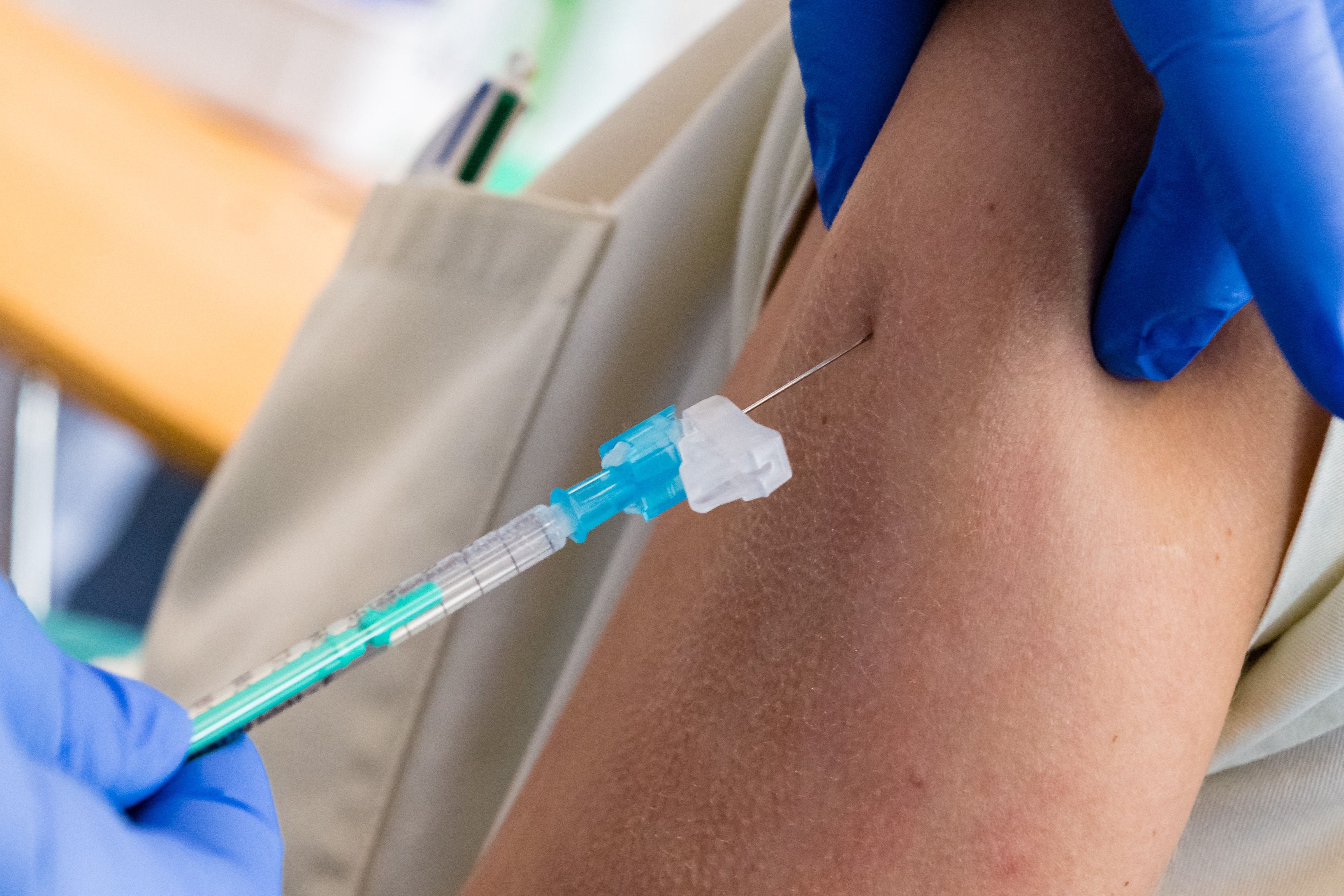AstraZeneca’s vaccine is suffering from a PR problem. The economic costs could be considerable
Scientists and several regulatory agencies say its safe and the data that’s caused some to raise concerns about blood clots looks shaky, but some countries have suspended the treatment. There’s a whiff of the false MMR/autism scare in the air, writes James Moore


Panic and over-reaction are common features of the world’s markets, but the latter took the recent fuss about AstraZeneca’s Covid vaccine a lot more calmly than the governments which have suspended the treatment.
Norway got the ball rolling, citing concerns about blood clots in patients who’d had the shot. Ireland, France, Italy, the Netherlands, Germany, Denmark, Bulgaria and Iceland are among others to have suspended the use of the vaccine. Thailand also took the step, albeit temporarily.
The drug group’s shares nonetheless opened the trading week ahead, mildly, having been on a downward trend in recent weeks. Of course, Astra isn’t, by contrast to say Pfizer, yet making any money from its treatment and won’t until it deems the pandemic to be over. The vaccine is being supplied at cost.
But it’s also true that the concerns expressed about it seem tenuous.
People get blood clots, especially as they age, and sometimes they’re fatal. It was inevitable, therefore, that some people would naturally get them after having the vaccine.
Read More
No connection has yet been established between the two. From the available data, it appears that patients vaccinated with the AZ vaccine are actually getting clots at a lower rate than the general population, and certainly than people suffering from Covid-19, to which clots have also been linked.
This a point AstraZeneca has made. Of course, it is a business, and the vaccine is one of its products. But similar comments have been issued by the UK’s Medicines & Healthcare Regulation Agency, the European Medicines Agency, the World Health Organisation and a number of scientists.
Astra’s treatment has proven effective in clinical trails otherwise it wouldn’t be out there. It also doesn’t need to be kept at very low temperatures like its more expensive rival produced by Pfizer. This ought to make it particularly well suited to low- and middle-income countries, which may struggle to access the sort of freezers needed to store Pfizer’s treatment.
The trouble is, it has become the victim of some nasty negative PR, in which politics had played a role. This has caused particular problems in, for example, France, where President Macron voiced baseless claims about a lack of effectiveness among older people.
It is possible to wonder whether the more recent alleged link to blood clots will come to look disturbingly like the link that was alleged – falsely – between the childhood MMR vaccine and autism. Some who had the vaccine as children were also autistic. The “study” that made the claim of a causal link was, however, rapidly debunked, just not rapidly enough for a toxic myth to start spreading.
Measles, another exceptionally nasty virus that is even more contagious than Covid, at one point looked as if it might be eradicated. In some places it is spreading again and causing blindness and sometimes premature death among children.
The bad publicity that’s hit Astra’s treatment will also have a cost if, as has happened in parts of Europe, people prove reluctant to take it up for no good reason.
Vaccination not only protects people against the worst effects of the virus, and thus saves lives, it also offers a way out of the economic and societal crisis whipped up by the pandemic, the cost of which is proving to be extraordinarily steep.
First and foremost it has been killing people.
But stop-start lockdowns, forced by repeated waves of viral attacks, and the emergence of new, more contagious variants, are also exacerbating economic crisis.
The level of scarring increases each time restrictions are imposed. Important industries that employ millions of people are teetering on the brink. Insolvencies and redundancies are rising even with the government support that’s been made available.
The exit route from this offered by vaccination programmes will inevitably be endangered if confidence is needlessly shaken. The evidence of wariness towards the AstraZeneca treatment that already exists in France, and other parts of Europe, stands in mute testimony to that.
Without mass take up globally, fresh variants, and fresh waves of infection, may emerge to torment us.
There was a commendably sober note put out by broker Shore Capital after the weekend’s events, looking at the data and the implications.
Its assessment of the data chimed with that of others. But the broker nonetheless warned of the danger of governments being perceived to ignore possible risks associated with vaccination, fearing this could harm take up.
Of course, shaky looking claims could do that too, as they have done in the past.
Shore’s conclusion makes sense: “Given the spread of the virus and the risk of severe Covid-19 in vulnerable people who aren’t vaccinated, it is important that analysis is completed quickly, and that the results are reported accurately and clearly to the general public.”
That’s particularly true given the troubling fog of bad PR surrounding this particular vaccine.
Join our commenting forum
Join thought-provoking conversations, follow other Independent readers and see their replies
Comments